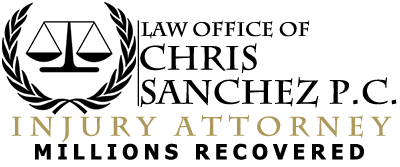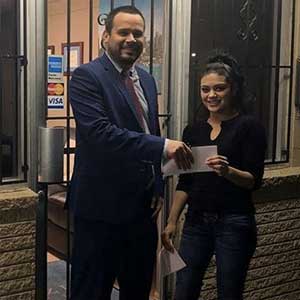Ridesharing services like Uber and Lyft have become integral to how we navigate urban landscapes, offering convenience and flexibility to millions of users every day. However, with the rising use of these platforms, we are also witnessing an increase in related car accidents. As we seek solutions for those affected by such incidents, our focus turns to specialized legal services that cater to the complexities involved in Uber and Lyft car accidents. Legal representation in these cases requires a nuanced understanding of the evolving laws and policies governing rideshare operations.
When one is involved in an accident as a passenger or driver in an Uber or Lyft vehicle, the situation can quickly become daunting. We recognize the unique challenges that arise in the aftermath of such events, including determining liability and navigating multiple insurance policies. Car accident lawyers who specialize in rideshare cases are equipped to dissect these layered issues, offering guidance and representation tailored to the intricacies of the shared economy.
Securing the right legal expertise is paramount as we aim to protect our rights and ensure fair compensation for injuries and losses. These specialized attorneys understand the dynamics between rideshare companies, insurers, and individuals involved in the accident, working diligently to advocate on our behalf. We find it crucial to align with professionals who are well-versed in the legislation and have a track record of successfully handling rideshare accident claims, helping us to navigate the legal landscape with confidence and precision.
Understanding Your Rights After an Uber or Lyft Accident
If you’re involved in an accident as an Uber or Lyft passenger, driver, or a third party, it’s imperative to understand our legal rights and options. Ride-sharing services have transformed urban transportation, but they also bring complexities in the event of an accident. Here’s a breakdown of our rights:
- Insurance Coverage: Both Uber and Lyft offer insurance policies to their drivers and passengers. Depending on the accident circumstances, coverage may vary. It’s crucial to assess the type of coverage active during the incident.
- Reporting the Accident: It is our responsibility to report any accident to the appropriate ride-sharing company. We must do this promptly to ensure documentation and initiate the claim process.
- Medical Attention: Seek immediate medical care if we’re injured. Documentation from healthcare providers will be essential if we pursue a compensation claim.
- Legal Representation: Consulting with a specialized lawyer can provide us with insights into our situation. A skilled attorney will navigate the multifaceted legal landscape of ride-sharing accidents on our behalf.
Key Steps to Take:
- Safety First: Ensure everyone involved is safe and call emergency services if needed.
- Information Gathering: We should collect driver information, insurance details, and witness contacts.
- Documentation: Take photos of the accident scene and our injuries.
- Avoid Admissions: We should be cautious about what we say following the accident to avoid admissions of fault.
- Legal Consultation: Speak with an Uber or Lyft car accident lawyer to discuss our circumstances and legal options.
Understanding our rights helps to assert them effectively and seek the compensation we may be entitled to under the law. When in doubt, professional legal guidance is recommended to navigate the complexities of these situations.
Navigating the Legal Process
Navigating the legal process after an Uber or Lyft car accident involves a sequence of critical steps to ensure rightful compensation. We focus on determining liability, taking action immediately following the accident, navigating the complexities of insurance claims, and understanding when to pursue a personal injury lawsuit.
Determining Liability and Insurance Coverage
Liability in ride-sharing accidents can be complex due to multi-layered insurance policies. Both Uber and Lyft carry third-party liability insurance coverage which may come into play, but determining whether the driver’s personal insurance or the company’s policy applies is our first step. We carefully review the details of the accident to establish who is at fault.
Steps to Take Following an Accident
Immediate action post-accident is crucial. Here are the steps we advise:
- Check for injuries: Ensure the safety of everyone involved.
- Report the accident: Contact the police and make a formal report.
- Gather Information: Collect driver details, insurance information, and witness statements.
- Document the scene: Take photos and note conditions.
Each action taken is additional evidence supporting your case.
Filing an Insurance Claim
We guide you through the process to file a claim with the relevant insurance company. Key aspects include:
- Timeliness: Insurance claims must be filed promptly.
- Accuracy: Ensure all details are correct to avoid disputes.
- Documentation: Provide all gathered evidence from the accident.
We handle communications with the insurance adjusters to protect your interests.
Pursuing a Personal Injury Lawsuit
If insurance does not adequately cover damages, we may advise pursuing a personal injury lawsuit. This entails:
- Professional Evaluation: Assessment of the full extent of damages and losses.
- Legal Strategy: Crafting a solid legal strategy tailored to your specific circumstances.
- Representation: Assertive representation in court to fight for your rights.
Through a calculated approach, we aim to secure the compensation you deserve.
Compensation and Damages
When pursuing a claim after an Uber or Lyft car accident, our primary objective is to secure adequate financial compensation for our clients. This compensation reflects the totality of damages incurred because of the accident.
Calculating Potential Compensation
We meticulously evaluate each case to ascertain the full extent of losses. Our evaluation is based on:
- Medical expenses, both current and anticipated
- Lost wages and future earning capacity
- Property damage, specifically vehicular repairs or replacement
- Pain and suffering, incorporating mental anguish and reduced quality of life
A detailed assessment of these factors ensures that we demand a compensation package that truly reflects the impact of the accident.
Types of Recoverable Damages
Our clients are often eligible to recover two main types of damages: economic and non-economic.
Economic Damages
- Medical bills (including future medical care)
- Lost income (including potential future earnings)
- Property damage (costs related to vehicle repair or replacement)
Non-Economic Damages
- Pain and suffering (physical discomfort and emotional distress)
- Loss of consortium (impacts on the relationship with a spouse)
- Reduced quality of life (long-term consequences of the accident)
By identifying all applicable damages, we work to ensure that the compensation we pursue is comprehensive and just.

